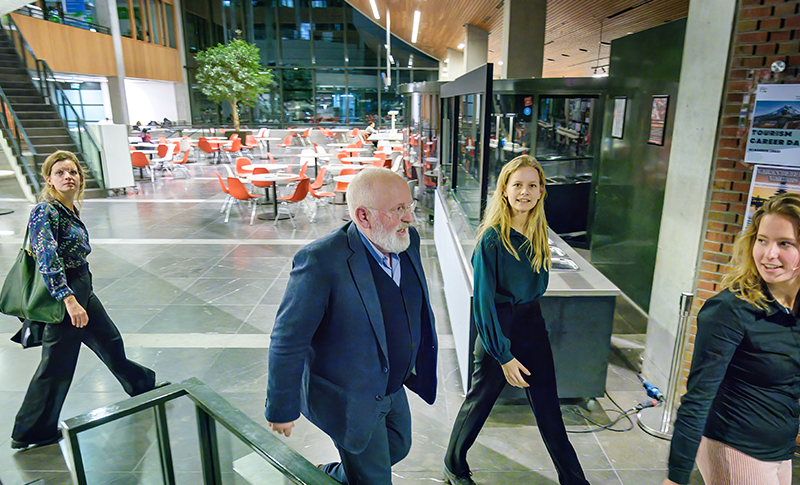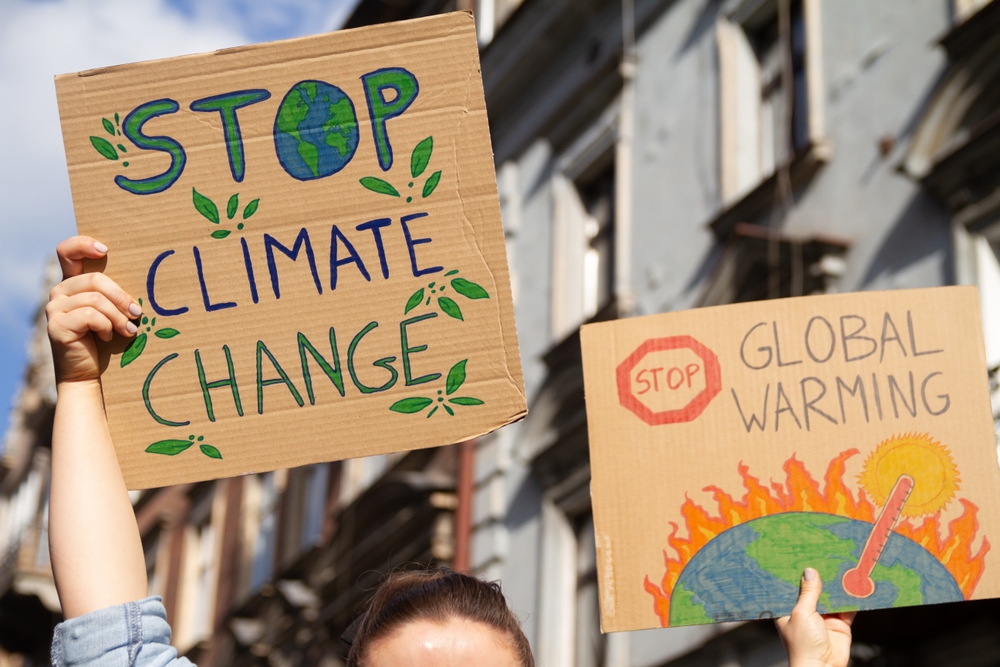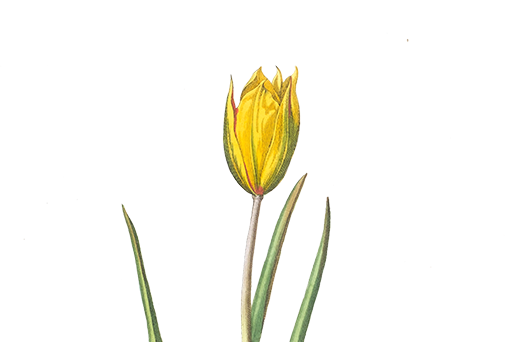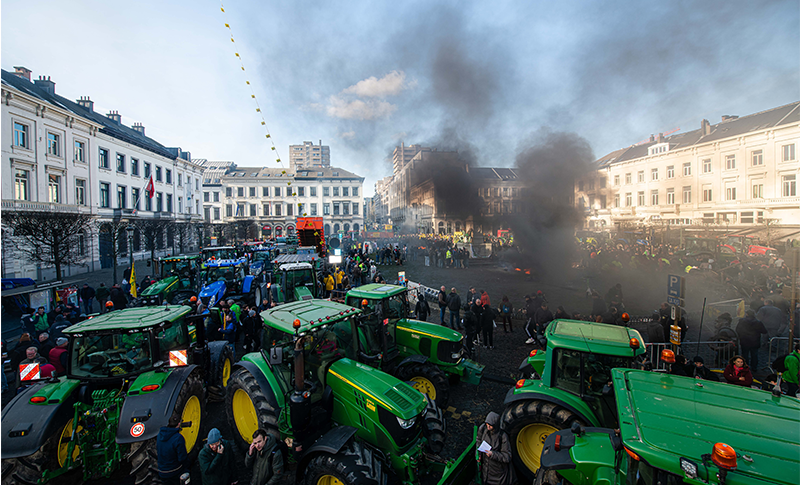When Frans Timmermans said ‘yes’ to an invitation from three WUR students to drop by for their symposium Let’s Talk Climate Policy, they were quite surprised. The penny dropped during the evening itself, when the European Commission vice-president told a room full of students: ‘I am here for selfish reasons: I need your help.’
The blue flag with a ring of stars is flying outside the Forum. In a couple of hours, Frans Timmermans will arrive to discuss climate policy with WUR students. Bachelor’s students Floris Helmendach (20, Molecular Life Sciences), Gerline van Beusekom (21, Biology) and Eva van der Wolf (22, Nutrition and Health) are organizing the symposium and will be the moderators. Are they confident about it? ‘Absolutely,’ says Van Beusekom firmly, ‘Floris and I have known each other a long time and we have prepared thoroughly.’ There is a bit of healthy nervousness, Helmendach admits, but that’s to be expected. ‘Mainly, I’m really looking forward to it.’
A few hours later, the room is bursting with students. Three groups of students have prepared climate policy pitches and one student from each group comes onto the stage to speak in turn about climate justice, agricultural policy and the energy transition. The first kicks off with: ‘Our current economic system eggs us on to use all the resources we can find. Meanwhile, the southern hemisphere is only allowed to develop on our terms. Economic innovation may be more important for achieving climate justice than technological innovation. Question growth and start by taking a critical look at our economic system.’
Redistribution
A convincing argument, says Timmermans. ‘Let’s look at the situation in all its complexity. We are in the middle of the biggest industrial revolution ever; there is a climate crisis that threatens our survival but is solvable; and there are global injustices that have got to be addressed.
Society is scared and clings to the past. But there is no future in the past
Politically, the bottom line is: redistribution. How we distribute the limited capacity of this world will determine whether humanity has a future.’ According to Timmermans, political opponents try to frame the climate issue as something that clashes with social issues. ‘And yet the poorest suffer most from climate change. The climate issue is a social issue.’
So poorer countries should be allowed to develop, says Timmermans. ‘But it really has to be done sustainably. It’s possible for 10 billion of us to share this planet, but to do so, absolutely everything has to change. For that, we desperately need your generation, your brains and your talent.’
Rapid-fire questions
It quickly becomes clear that this generation is keen to join in the debate, and one student after another stands up and asks critical questions about European agricultural and energy policy, what they can do to save the world, and – not unimportantly – how they can arrange an internship at the European Commission. The students lap up Timmermans’ answers, sometimes rewarding them with applause, like his answer to the question how ‘big tech’ can help solve the climate problem: ‘By paying taxes,’ says Timmermans.
The second student pitch shreds the Green Deal’s agricultural policy: the money would mainly go to large, less sustainable farmers, and the EU requires too little sustainability in exchange for subsidies. Timmermans: ‘I agree 100 per cent. Because of the war we are given the impression that food is becoming scarce, so governments aim at producing more in the same old way.
Twenty years ago, students wanted a job, a car and a house. Now they want to save the world
Society is scared and clings to the past. But there is no future in the past. The science is clear: things have to change. So I’m asking you to help me get that message across.’
The third pitch is razor-sharp too. ‘For decades, scientists and activists have been asking the EU to phase out fossil fuel. Did a war really have to break out in Ukraine to get us moving? And what does the EU do? Invest in new fossil projects in the Middle East and Africa.’ That’s right, says Timmermans, who agrees that more must be done to speed up the energy transition. But: you can’t just switch off an energy system based on fossil fuels overnight. ‘So we will need fossil fuels for a while yet. To keep Europe supplied with fuel, we have to sign long-term contracts. It says in those contracts that we will eventually switch to sustainably produced gas such as hydrogen, so that we are not stuck with fossil fuels. The countries we sign those contracts with know that fossil fuels are on their way out. For them, renewable energy is a new business model.’
Hopeful
Earlier in the evening, Timmermans said students have changed. ‘Twenty years ago, they wanted a comfortable job, a car and a house. Now they want to save the world.’ When moderator Van Beusekom announces the last question from the audience, dozens of students stand up. Timmermans can return to Brussels hopeful: this generation is raring to go.

 Frans Timmermans on his way to the meeting in Forum where students talked to him about climate policy. Photo: Guy Ackermans
Frans Timmermans on his way to the meeting in Forum where students talked to him about climate policy. Photo: Guy Ackermans 

